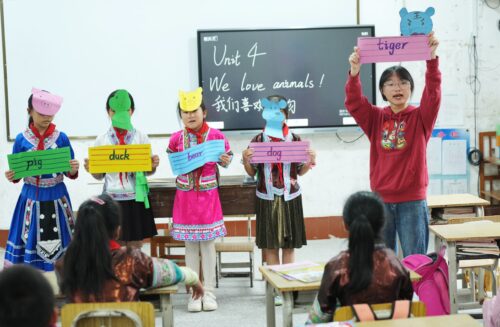‘Robbing the opportunities of others’ — Phrase of the Week
Kids in Henan are taking spaces at schools in the neighboring province. Parents are not happy.

Our Phrase of the Week is: Robbing the opportunities of others (半路截胡 bànlù jiéhú).
The context
Parents in the northwestern city of Xi’an, the capital of Shaanxi Province, have been seeking answers from local education officials over claims that this year’s high school exam, known as the zhōngkǎo 中考, included students from other provinces.
Footage circulated on social media showed parents protesting outside government buildings over the weekend, demanding:
Kids in Xi’an also need an education!
西安娃,要上学!
Xī’ān wá, yào shàngxué!
The controversy comes after the city announced zhongkao results last Friday. Rumors have circulated that up to 40,000 of the around 100,000 total zhongkao takers in Xi’an were students from other provinces — in particular, neighboring Henan Province.
These students study in schools outside Xi’an, but they have their household registration, or hùkǒu 户口, in the city, which has one of the country’s most relaxed hukou systems following reforms in 2017 to attract talent.
The policy also allows for Shaanxi parents working in another province to send their children back to take the zhongkao in their hometown, so they are known as “returning students” (回流生 huíliú shēng).
Parents of students living in Xi’an say that for every place taken by a student from another province, there is one less available for a student from Xi’an.
From elementary school to junior high school, and then to high school, every step is full of hardships and bitterness. So naturally, we can’t tolerate the returning students who swoop in to steal top spots from local students.
从小学到初中、高中,一关一隘无不艰难辛酸,自然无法容忍半路杀出来截胡的回流生。
Cóng xiǎoxué dào chūzhōng, gāozhōng, yìguānyíài wúbù jiānnán xīnsuān, zìrán wúfǎ róngrěn bànlù shāchūlái jiéhú de huíliúshēng.
And with that, we have our Phrase of the Week.
What it means
Robbing the opportunities of others is a set four-character phrase. Split into its two constituent parts, it directly translates as “halfway” (半路 bànlù) and “intercept” (截胡 jiéhú).
Extra emphasis is added with 杀出来 shāchūlái, “kill; come; out,” which conveys the meaning of something unexpected happening suddenly, or “swooping in.”
Swoop in to steal
半路杀出来截胡
Bànlù shāchūlái jiéhú
“Intercept” in Chinese is a technical term in the board game mahjong (麻将 májiàng). Mahjong is a tile-based game that was developed in the 19th century in China.
This two-character phrase describes a specific scenario in the game: 截 jié means “to intercept”; 胡 hú means “to win a mahjong game” by getting all 14 of your tiles into four sets of three and one pair.
Intercepting is to collect a discarded tile from another player: The person sitting to the right of the player who discarded the tile can claim victory, “intercepting” them, and winning the game, or 截胡 jiéhú.
The phrase intercept halfway (半路截胡 bànlù jiéhú) has become a metaphor for “robbing another person’s victory just before they were about to succeed.”
For students in Xi’an whose places at high schools are being taken up by returning students who live in other provinces, the phrase could be translated as “unfairly robbing the opportunity for education.”






